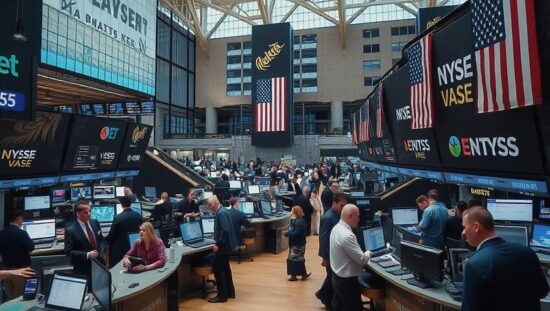The German stock market experienced a cautiously optimistic day of trading on Thursday, with the DAX index closing significantly higher but revealing underlying tensions regarding investor sentiment and future economic prospects. By midday, the index reached approximately 23,370 points, a robust 0.9 percent increase over the previous day’s close. Siemens Energy, Rheinmetall and RWE led the gains, while Adidas, Volkswagen and BASF lagged behind.
However, the rally masked a growing disconnect within the market. As market expert Andreas Lipkow observed, investors are struggling to translate the fervor surrounding artificial intelligence into sustained confidence in established German blue-chip companies. While cyclical industries are currently driving market performance, broader optimism remains constrained. This highlights a worrying trend – the inability to broadly share the benefits of emerging technologies across the entire German economy.
The persistent question looming over the market is whether the long-anticipated economic recovery, repeatedly forecast for the past four years, will finally materialize. While hope remains, fuelled by the DAX’s current performance, analysts caution against excessive optimism. The continued reliance on cyclical sectors suggests a fragility in the overall economic foundation, raising concerns about the sustainability of the current upward trend. This dependency also exposes the German economy to fluctuations in global demand, particularly within industries impacted by geopolitical instability.
Adding to the complex landscape, the Euro weakened slightly against the US Dollar, trading at $1.1519, reflecting anxieties over European economic stability and competitiveness. The rise in Brent crude oil prices to $64.01 per barrel, a 0.8 percent increase, signals potential inflationary pressures and further complicates the economic outlook, adding another layer of risk for policymakers. The disconnect between the DAX’s rally and these broader economic headwinds warrants careful monitoring and raises questions about the underlying health of the German economy.





